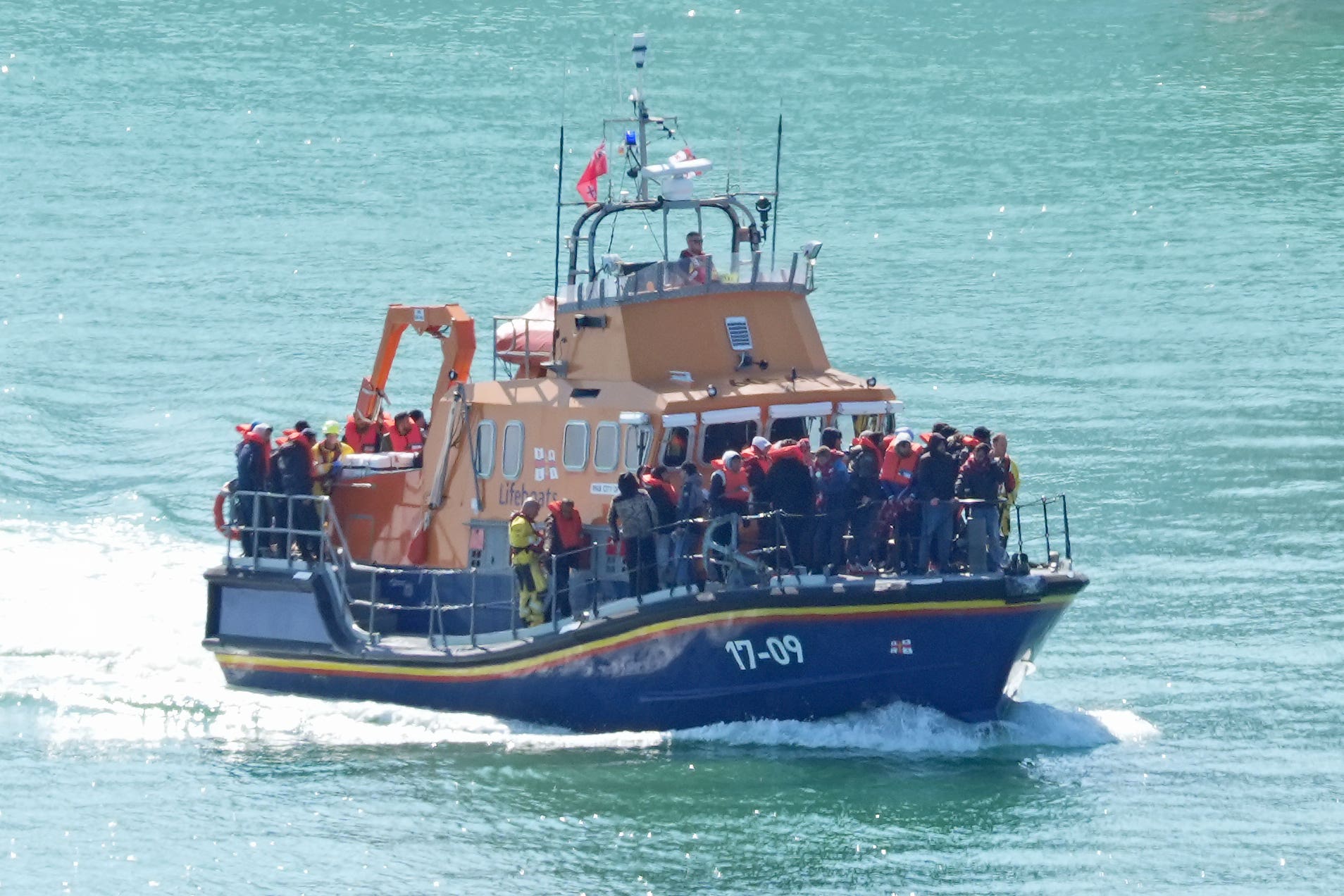Channel crossings: Migrants arriving in UK since Rwanda deal top 80,000
The latest figures also show more than 125,000 migrants have made the journey since 2018.

More than 80,000 migrants have arrived in the UK after crossing the Channel since the Government struck the Rwanda deal over two years ago.
The latest crossings also mean more than 125,000 migrants have made the journey in the last six-and-a-half years as the recent crisis unfolded.
The tally since Rishi Sunak became Prime Minister is edging closer to 50,000 and the number arriving since the General Election was called is nearing 1,000.
The Rwanda agreement signed by then home secretary Priti Patel on April 14 2022 – which she described as a “world-first” – paved the way for migrants to be handed a one-way ticket to the east African nation if they were deemed to have arrived in the UK illegally.
But the plan has been beset with difficulties ever since and stalled amid a string of legal challenges.
Some 80,109 migrants have been recorded arriving in the UK after crossing the Channel between April 15 2022 and June 4 2024, according to PA news agency analysis of Government figures.
With immigration a key election campaign battleground, Mr Sunak – who promised to “stop the boats” altogether – has consistently pointed to the Rwanda plan to achieve this, describing it as an “indispensable deterrent”.
But he admitted flights would not take off before the General Election, pledging that he would stick to the plan if re-elected.
The Home Office said 234 people made the journey in four boats on Tuesday. This suggests an average of 59 people per boat and takes the provisional total number of crossings for the year so far to 10,745.
This is up 41% on the number recorded this time last year (7,610) and 8% higher than the same point in 2022 (9,984), according to PA analysis of the data.
The figures also show:
– 125,090 migrants have arrived in the UK after crossings the Channel since January 1 2018, when recent records began;
– Since Rishi Sunak became Prime Minister on October 25 2022, 47,808 people have made the journey;
– Over 40,000 of these took place after he pledged to “stop the boats” on January 4 2023 (40,138);
– Since the Safety of Rwanda Act gained Royal Assent on April 25, 4,078 arrivals were recorded.
– Since the General Election was called on May 22, 863 migrant crossings have taken place.
Mr Sunak offered his strongest suggestion yet that he could be willing to leave the European Convention on Human Rights (ECHR) if the Rwanda plan remained blocked by the courts, as he clashed with Sir Keir Starmer in their first TV election debate.
“If I am forced to choose between securing our borders and our country’s security, or a foreign court, I’m going to choose our country’s security every single time,” Mr Sunak said.
But the Labour leader warned the UK risked becoming a “pariah” state if it left international conventions.
Last week, before Parliament was dissolved, a group of MPs warned the Home Office “does not have a credible plan” for sending asylum seekers to Rwanda.
The Commons Public Accounts Committee (PAC) said it has “little confidence” in the government department’s ability to put the plan into action, finding it has “little to show” for the millions of pounds spent so far on the policy and its asylum accommodation projects – which “fell woefully short of reality”.
Bookmark popover
Removed from bookmarks